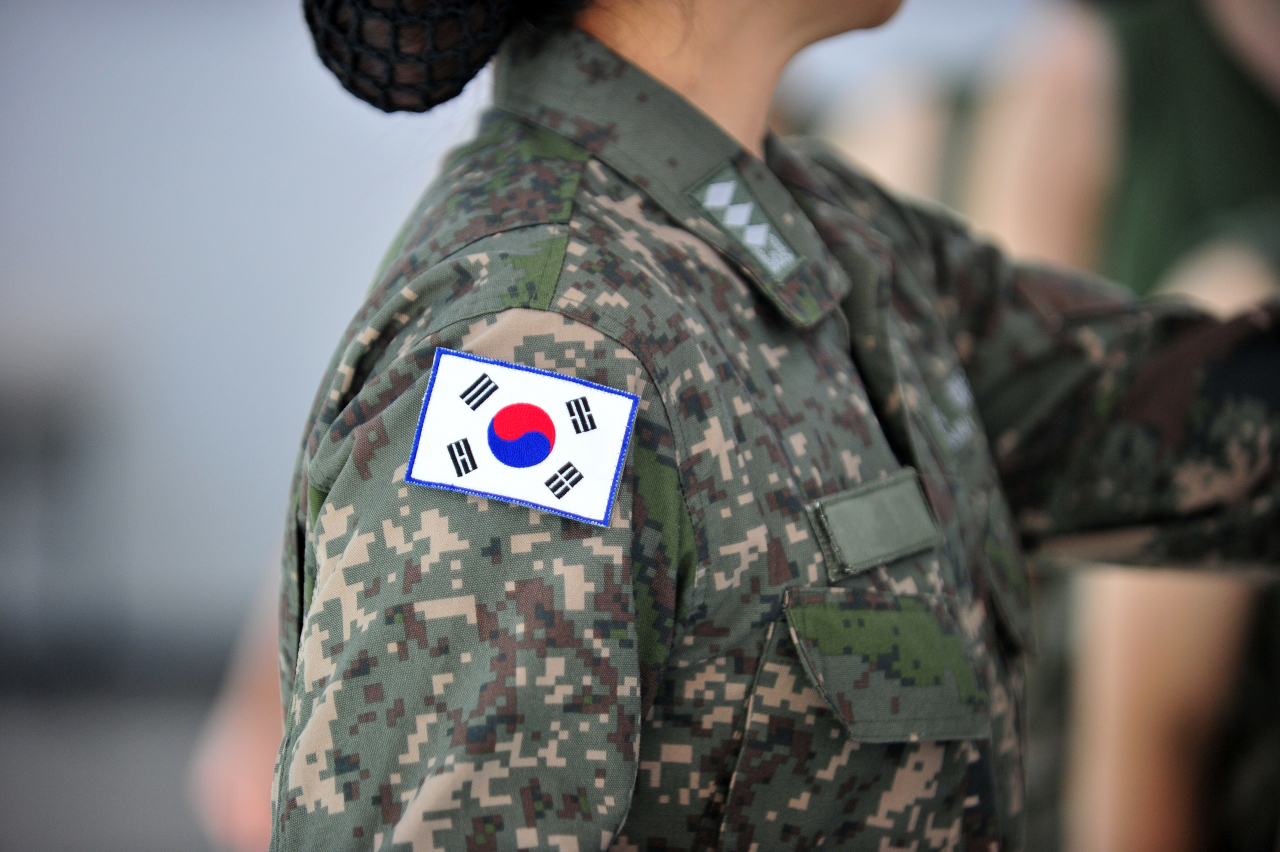 |
(Photo - Getty Images) |
South Korea’s Defense Ministry said Friday that it is neither considering expanding military conscription to female citizens nor extending the period of mandatory military service for eligible male citizens as ways to address personnel challenges in the military, amid the ongoing controversy surrounding the current military service system.
The ministry also said it has ruled out abolishing the alternative civilian service, which enables those who object to military service on various grounds -- including conscientious objectors -- to perform other forms of national service in lieu of military conscription.
The Defense Ministry issued its statement early on Friday following a high-profile seminar that reignited a debate on how to address acute shortages in military personnel, which have been exacerbated by South Korea’s looming demographic crisis.
The seminar was co-hosted by South Korea’s Military Manpower Administration, Rep. Shin Won-sik, who is a three-star general-turned-lawmaker of the ruling People Power Party, and the Korean Retired Generals and Admirals Association. South Korean Vice Defense Minister Shin Beom-chul also participated in the seminar at the National Assembly.
Shin said that the ministry has been making efforts to transform the military's structure by reducing the number of troops and focusing on manned-unmanned teaming systems.
“In this process, we will also work together to develop a military service system for the era of the demographic cliff," he said, referring to the phenomenon in which Korea's working population between the ages of 15 and 64 is shrinking, with the concern of a precipitous decline.
Lee Ki-sik, commissioner of the Military Manpower Administration, underscored that the “grave crisis of a decreased youth population has caused immense problems in stably securing manpower resources for military service.”
“Therefore, developing a new policy for the military service is an urgent task that cannot be postponed,” Lee said at the seminar.
Lee Han-ho, former Air Force chief of staff and current chair of the Korean Retired Generals and Admirals Association, proposed drafting South Korean women into the armed forces, warning of the adverse consequences of downsizing troops in the face of escalating missile and nuclear threats from North Korea.
“At the end of the day, people fight wars on the battlefield even if we develop and secure advanced weapons systems and incorporate technologies of the fourth industrial revolution,” Lee said.
“Women could not be conscripted in the past when the birth rate was over 6 percent. But now, with the birth rate at only 0.78 percent, there is no reason why women cannot serve in the military," according to him.
Lee called for revising the Military Service Act to allow women to be conscripted.
In South Korea, all able-bodied male citizens are required by law to serve in the military for at least 18 months between ages 18 and 35. Female citizens are exempted from mandatory conscription.
Choi Byung-ook, a professor of the department of national security at Sangmyung University in Seoul, also proposed that the South Korean military should increase the proportion of female military officers from the current 8.8 percent to 15 percent.
Choi pointed out that women made up more than 20 percent of forces dispatched to Iraq and Afghanistan from 2003 to 2014, arguing that technological developments have blurred the lines between the roles of male and female soldiers on the battlefield.
Cho Kwan-ho, a senior research fellow at the state-funded Korea Institute for Defense Analysis, pointed out that without reforming the military service system, shortages in military personnel will intensify, making it difficult for South Korea to maintain its current level of troops.
“If we maintain the current conscription period of 18 months, there will inevitably be significant problems with the supply of military personnel,” Cho said.
To maintain the existing personnel level, 260,000 enlistees are required every year if they serve for 18 months. However, the number of eligible male recruits who are 20 years old is projected to only be 220,000 in 2025, resulting in a shortage of 40,000 personnel.
Cho warned that under the current conscription system, there will be a reduction of about 20,000 enlisted personnel every year after 2035. However, extending the conscription period by six months would add 50,000 military personnel to the forces.
“We will need to extend the conscription period to 21 or 24 months, to ensure sufficient military personnel," he said.
South Korea’s Military Manpower Administration said Friday that these proposals do not represent the government’s official stance, while underscoring that it will “actively prepare for the crisis of decreasing military personnel resources in cooperation with the Defense Ministry and other related agencies.”







![[Today’s K-pop] Blackpink’s Jennie, Lisa invited to Coachella as solo acts](http://res.heraldm.com/phpwas/restmb_idxmake.php?idx=644&simg=/content/image/2024/11/21/20241121050099_0.jpg)